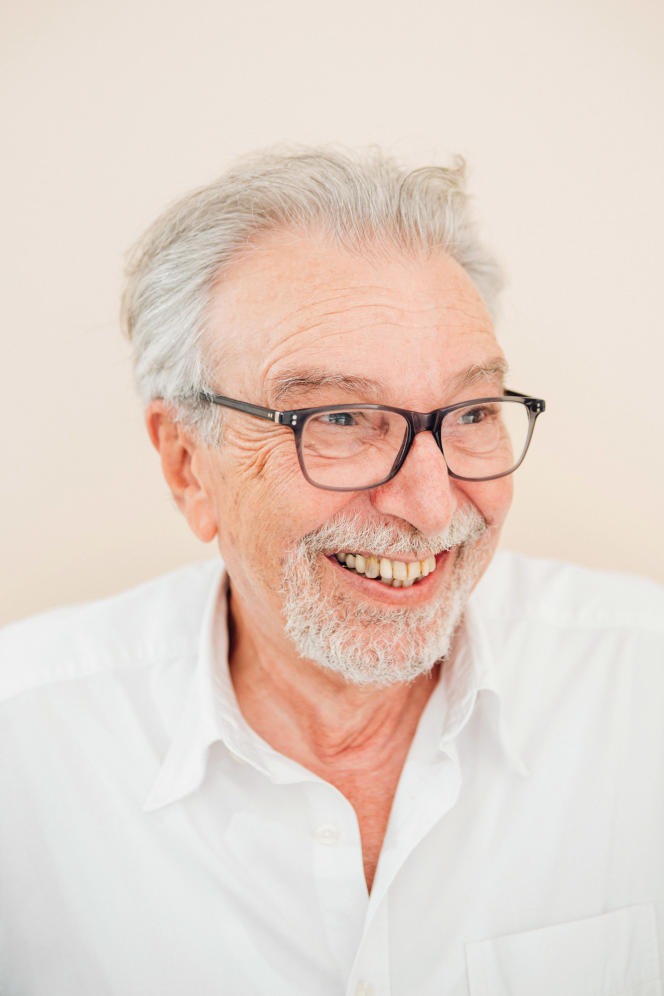The last time Farouk Mardam-Bey saw Syria was in 1975, his mother had just died. Bashar Al-Assad was 10 years old and his father, Hafez, had only been in power for five years. Today, the publisher is 78 years old and unlikely to ever return to his native country. Syrian by birth and French by adoption, notorious opponent of the Assad regime, fine scholar, fine gourmet, Farouk Mardam-Bey is a compass for all those in Paris who are interested in Arab culture. For more than a quarter of a century, it has single-handedly embodied Sindbad-Actes Sud, the main publisher of Arabic literature in France, which is celebrating the fiftieth anniversary of its founding by Pierre Bernard in 1972.
Farouk Mardam-Bey chooses the titles, the authors and the translators, strikes a clever balance between ancient and modern, poets and novelists, bestsellers and avant-garde, rereads the texts, promotes them. He is also a prolific author with interests as eclectic as Nicolas Sarkozy’s Middle Eastern policy, the thousand and one ways to cook chickpeas, the deep springs of the Syrian dictatorship or contemporary Arabic poetry.
In the cauldron of May 68
Born in 1944, two years before Syrian independence, into a family of the good Damascene bourgeoisie, Farouk Mardam-Bey did all his schooling in French-speaking schools. He has two passions: politics and poetry. He is close to the Communist Party and writes poems for small magazines. In 1965, he embarked for France, where he continued his studies in law and political science. In Paris, he joined a small circle of exiles and activists, especially Palestinians and Lebanese. All bathed in the cauldron of May 68, where national and international causes merrily mingle. He himself is torn between his admiration for de Gaulle, a critic of Israel, and his commitment to the side of the Maoists.
After a higher degree in political science, Farouk Mardam-Bey found, in 1972, a job at the library of the National Institute of Oriental Languages and Civilizations (Inalco), rue de Lille, in Paris. He was to spend a few months there and ended up staying there for fourteen years. He was deprived of his Syrian passport after taking part in a demonstration in 1976 against the entry of Syrian troops into Lebanon. In the early 1980s, he took French nationality.
In 1982, after the Palestine Liberation Organization (PLO) was expelled from Beirut, he founded with the Palestinian intellectual Elias Sanbar the Journal of Palestinian Studies, distributed by Editions de Minuit until it was discontinued in 2008. The debates that agitate the Middle East are held in the columns of the austere square-backed quarterly. This Arabic equivalent of Modern times attracts some of the most brilliant minds of their generation, like the Lebanese Samir Kassir, assassinated in 2005 for his role in the huge demonstrations that led to the withdrawal of Syrian troops from Lebanon. “His death remains to this day the most painful loss for me”told the “World of Books” Farouk Mardam-Bey, who co-wrote with Kassir Routes from Paris to Jerusalem. France and the Arab-Israeli conflict (The Books of the Journal of Palestinian Studiestwo volumes, 1992-1993).
You have 65.98% of this article left to read. The following is for subscribers only.

